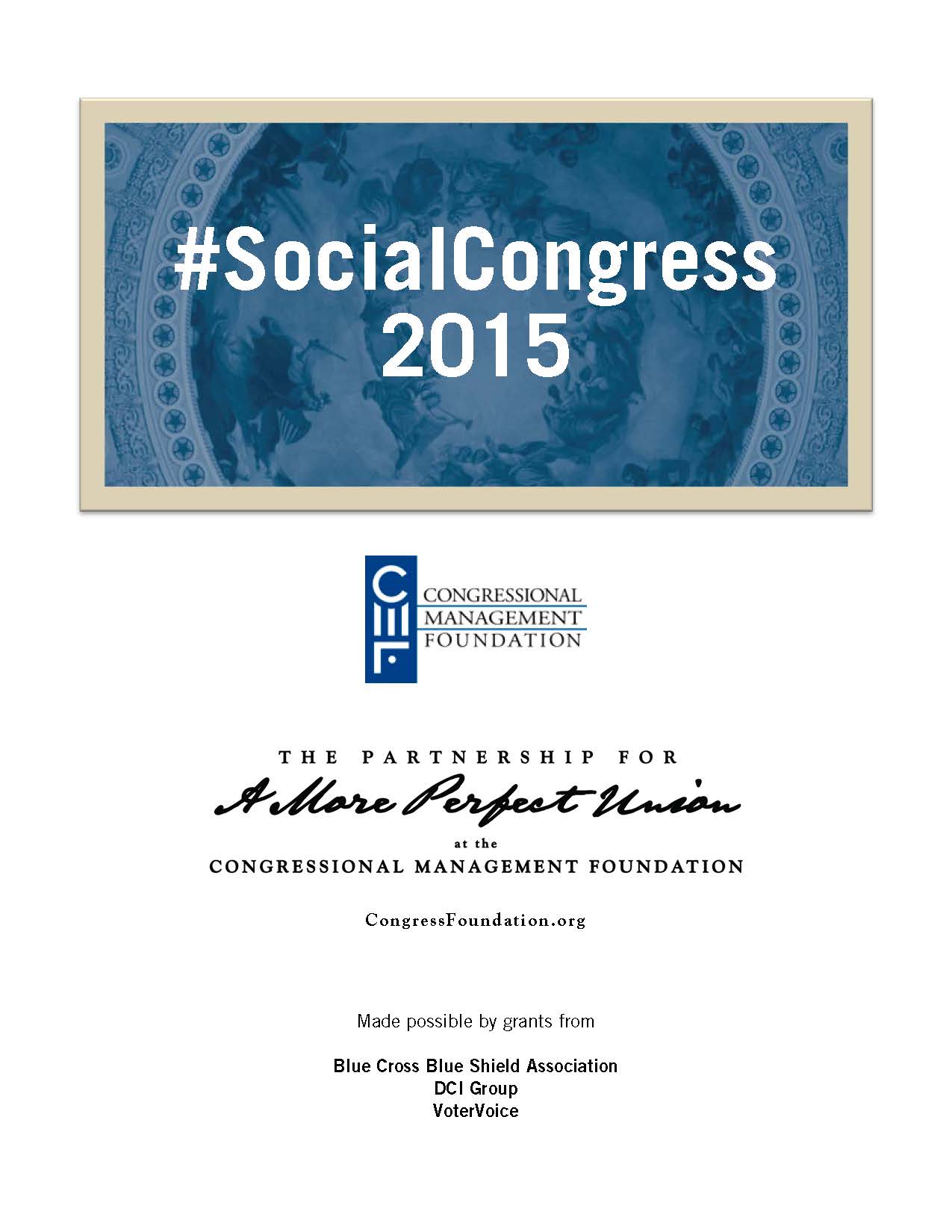 The findings are based on two online surveys conducted between July and August 2014, one of House and Senate Communications Directors and the other of House and Senate Legislative Directors and Legislative Assistants. CMF received a total of 116 responses: 53% were communications staffers while 47% were legislative and policy staffers; 55% were employed by Democrats and 45% by Republicans; 83% were employed in the House while 17% were employed in the Senate.
The findings are based on two online surveys conducted between July and August 2014, one of House and Senate Communications Directors and the other of House and Senate Legislative Directors and Legislative Assistants. CMF received a total of 116 responses: 53% were communications staffers while 47% were legislative and policy staffers; 55% were employed by Democrats and 45% by Republicans; 83% were employed in the House while 17% were employed in the Senate.
"#SocialCongress 2015" was sponsored by Blue Cross Blue Shield Association, DCI Group and VoterVoice. We thank them for their support of CMF's Partnership for a More Perfect Union.
- Download the Report (Public)
- Download the Report (Partners)
Key Findings
- Senators and Representatives are more inclined to use social media than they were in the past. Both communications and legislative staffers indicated their bosses have become more open to social media in recent years. Most of the respondents (84%) said Members of Congress have become more inclined to use social media while only 1% said their bosses had become less inclined to use it.
- Staff generally feel social media have improved relationships between constituents and Congress. More than three-quarters (76%) of the respondents "agree" or "strongly agree" with the statement "social media enabled us to have more meaningful interactions with constituents," and nearly as many (70%) agreed that "social media have made Members/Senators more accountable to constituents."
- Thirty or fewer similar comments on a social media post are enough to get an office's attention, but they need to be posted quickly or they may not be seen. About one-third (35%) of the respondents said it takes fewer than 10 similar comments for their offices to pay attention, and nearly half (45%) said their offices will pay attention to between 10 and 30 similar comments. However, the more time that passes after an office posts on social media, the less likely it will be that staff will review the response.
- Social media posts by constituents can influence undecided Senators and Representatives, but staff generally do not feel social media posts provide enough information to identify constituents. Many respondents said constituent input via social media would have "some" influence on their boss if he/she had not arrived at a firm decision on an issue, but staff also indicated that they have a hard time identifying when social media posts are from constituents. Just over one-third (36%) of the respondents indicated they "agree" or "strongly agree" with the statement, "Most of the social media posts to our platforms provide us enough information and context to determine if the post is from a constituent."
More Information
For more information, visit our Communicating with Congress page.


